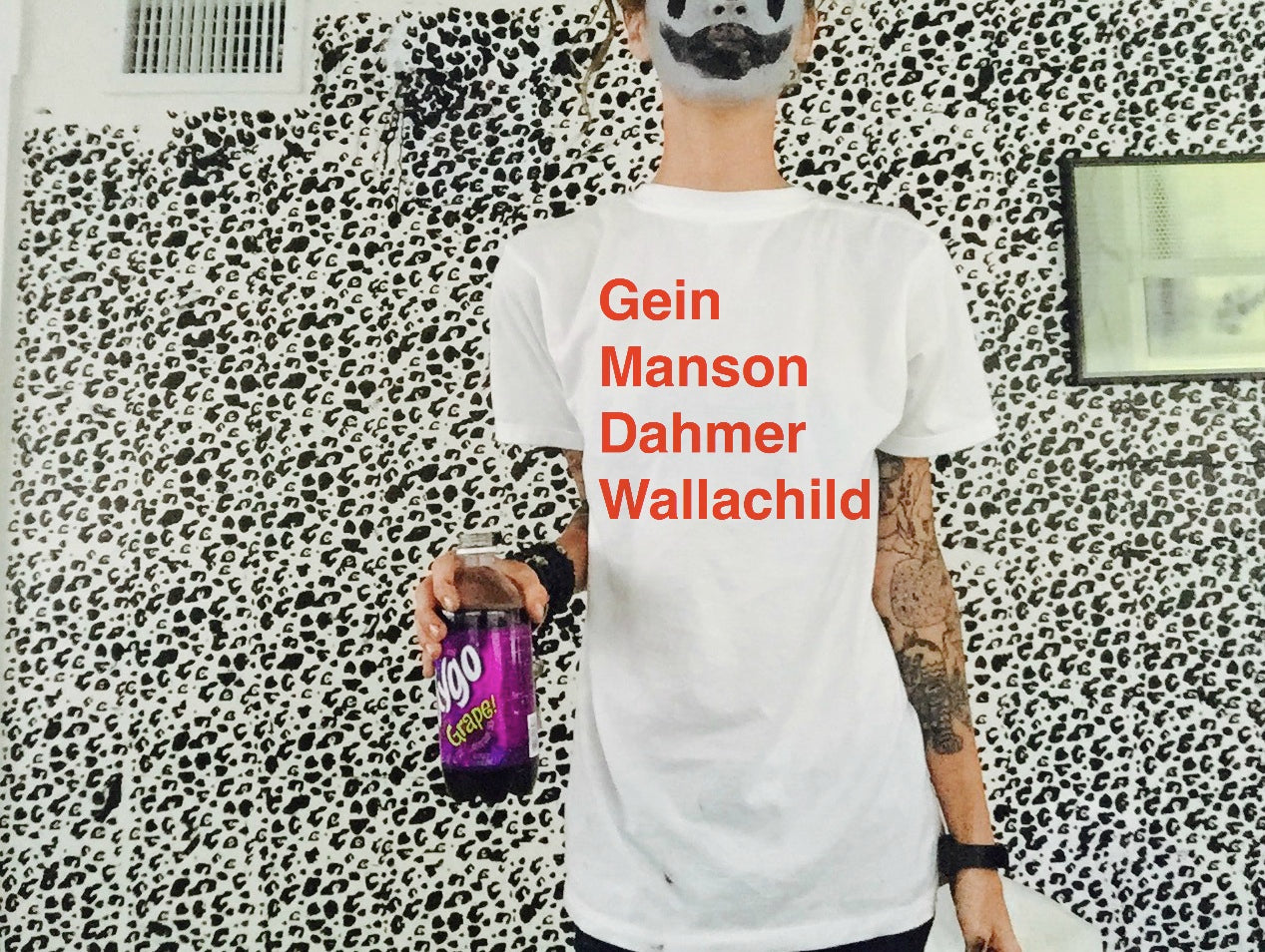
NATURAL BORN APPAREL, 2015
This shirt series takes its cue from the minimalist type-based designs once made famous by American Apparel—most notably, a list of global cities that served as stand-ins for fashion, status, and cosmopolitan identity. But instead of Tokyo, Paris, Berlin, and London, the shirts now read Bundy, Gacy, Dahmer, Ramirez… a roll call of American violence.
The effect is jarring, absurd, and deeply intentional. Where the original design offered a form of aspirational belonging (the cosmopolis as soft power), this version flips the script: the cities have been replaced by killers, the glamour of geography traded for the nihilistic glare of infamy. This is no longer about where you shop or travel—it’s about what you recognize, what you remember, and what you’re willing to wear on your chest for $35.
Enter Jean-Paul Sartre, who argued that existence precedes essence—that we are defined not by any fixed identity, but by the choices we make in the face of an absurd, indifferent universe. These shirts become a grim satire of this premise: under late capitalism, even infamy can become essence, and the absurdity is not existential dread, but market demand. The serial killer is no longer a moral failure or even a cultural taboo, but a brandable icon in the marketplace of recognition.
The move from black-and-white to white-and-red is more than aesthetic. The original palette suggested minimalism and neutrality. The remake, in white and red, suggests both innocence and violence, bleach and blood—a striking reminder that even horror can be made palatable with the right font and colorway. The shirts scream without raising their voice.
Sensationalism plays a double role here: first as subject (these are real people who inflicted real horror), and second as aesthetic. The design mimics the flattening effect of pop culture, where notoriety is just another vector of visibility. Bundy appears where Berlin once stood. The viewer does a double take—not because they’re horrified, but because they recognize the name.
Recognition is the product. As with all pop garments, the shirt says as much about the wearer as it does about its contents. But here, the implication is more perverse: what does it mean to wear the name of a killer like a destination? In this context, the wearer becomes both provocateur and participant in a culture that blurs morality and marketing.
Finally, the series speaks directly to the absurdity of capital—how violence, death, and cultural trauma are flattened into aesthetic choices, then sold back to us in clever packages. It’s not just commentary—it’s participation. And yet, within that participation lies the sting. The humor is sharp, the critique sharper: in a world where everything becomes merchandise, what doesn’t get commodified? Not even evil escapes the cotton blend.
